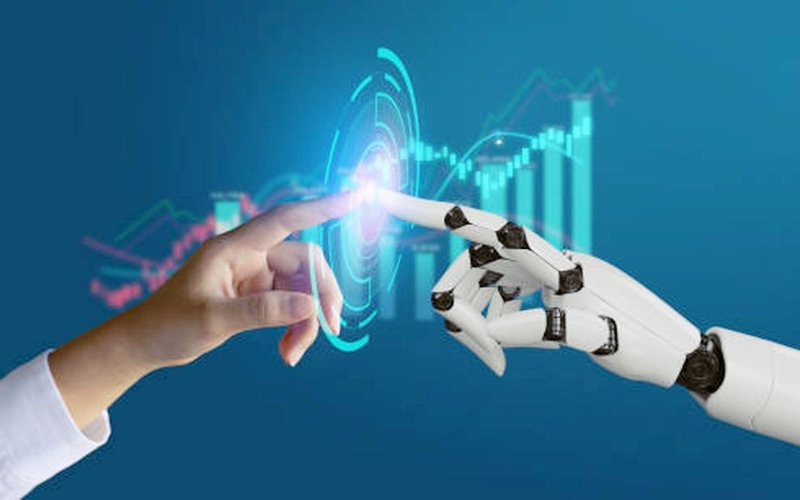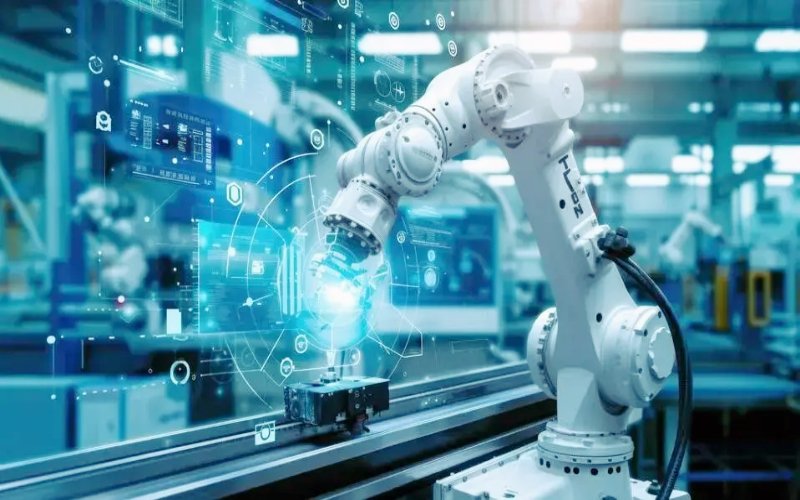Artificial Intelligence (AI) has become a buzzword in the modern tech-driven world. But what exactly is Artificial Intelligence? This term refers to the simulation of human intelligence in machines, allowing them to perform tasks that typically require human cognition, such as problem-solving, learning, and adapting. In simple terms, AI is all about creating systems that can think, learn, and make decisions autonomously.
As technology evolves, AI is becoming increasingly integral to various industries and daily life. From smartphones to self-driving cars, AI is enhancing efficiency, productivity, and even creativity. In this article, we’ll explore the different facets of AI, its current and potential applications, and the future it holds.
The Evolution of Artificial Intelligence
When we ask, “What is Artificial Intelligence?” it’s important to understand its evolution. The concept of AI has existed for decades, but it wasn’t until the 21st century that AI made significant strides. Early AI research was focused on creating machines that could perform simple tasks like arithmetic or logical reasoning.
The term “Artificial Intelligence” was coined in the 1950s by John McCarthy, and from there, the field grew, with researchers developing algorithms that could simulate problem-solving and learning. Fast forward to today, AI has progressed from rule-based systems to deep learning models, allowing machines to learn from vast amounts of data and make increasingly complex decisions.
Different Types of Artificial Intelligence
When you ask, “What is Artificial Intelligence?”, it’s essential to differentiate between the various types of AI. AI is generally classified into two categories: narrow AI and general AI.
Narrow AI: Focused and Specialized
Narrow AI, also known as weak AI, is designed to perform specific tasks. It is the most common form of AI today. Examples include recommendation systems on streaming platforms, voice assistants like Siri, and image recognition software. Narrow AI is highly specialized and excels at performing a single function but lacks the ability to handle tasks outside its domain.
General AI: The Holy Grail
General AI, or strong AI, is still a theoretical concept. It refers to machines that can perform any intellectual task that a human can do. While narrow AI is already making waves in various fields, general AI has yet to be achieved. Researchers are working toward creating AI that can understand and perform a wide range of activities, just like a human brain.
How Does Artificial Intelligence Work?
To understand “What is Artificial Intelligence?” on a deeper level, it’s important to grasp how AI works. At its core, AI relies on algorithms—step-by-step instructions that allow a computer to perform tasks. These algorithms can be trained using large datasets to identify patterns, make predictions, and improve over time.
Machine Learning: Teaching AI to Learn
A key component of AI is machine learning, which allows AI systems to learn from data without being explicitly programmed. For instance, in machine learning, a computer might analyze thousands of images to recognize patterns and learn how to identify objects like cats, dogs, or cars. The more data the system processes, the better it becomes at performing its task.
Deep Learning: Mimicking the Human Brain
Deep learning is a subset of machine learning that uses artificial neural networks to process information. This method mimics how the human brain works, enabling AI to process large amounts of data in layers and perform tasks like speech recognition, language translation, and even generating human-like text. Deep learning is powering some of the most advanced AI applications today, including self-driving cars and chatbots.
What is Artificial Intelligence’s Impact on Various Industries?
AI is transforming industries around the world, making processes more efficient, improving decision-making, and unlocking new opportunities for innovation. From healthcare to finance, AI is reshaping how businesses operate and interact with customers.
AI in Healthcare: Revolutionizing Diagnosis and Treatment
AI’s impact on healthcare is profound. It helps medical professionals diagnose diseases more accurately, predict patient outcomes, and personalize treatments. For example, AI-powered systems can analyze medical images like X-rays or MRIs and identify early signs of diseases such as cancer. AI is also being used to develop personalized treatment plans by analyzing a patient’s medical history, genetics, and lifestyle.
AI in Finance: Enhancing Security and Decision-Making
In the financial sector, AI is used to detect fraudulent activities, automate trading, and personalize financial services. Machine learning algorithms analyze transaction patterns to identify unusual behavior, which helps prevent fraud. Additionally, AI systems can analyze market trends and make predictions, assisting investors in making better-informed decisions.
AI in Transportation: Self-Driving Cars and Beyond
Self-driving cars are one of the most talked-about AI applications in transportation. These vehicles rely on AI to process real-time data from sensors and make decisions about navigation, speed, and safety. With advancements in AI, autonomous vehicles are expected to reduce accidents, improve traffic flow, and increase mobility for those unable to drive.
The Ethical Considerations of Artificial Intelligence
As we continue to integrate AI into various aspects of life, it’s essential to consider its ethical implications. While AI has the potential to make life easier and more efficient, it also raises concerns related to privacy, bias, and accountability.
Privacy Concerns: Safeguarding Personal Data
One of the primary ethical issues with AI is the use of personal data. Many AI systems require access to large datasets, including personal information, to function effectively. This raises concerns about data privacy and the potential for misuse. It’s crucial for developers and organizations to ensure that data is handled responsibly and that users’ privacy is protected.
Bias in AI: Ensuring Fairness and Equity
Another challenge is the potential for bias in AI systems. If an AI system is trained on biased data, it can produce biased outcomes, which may have harmful consequences. For instance, biased AI in hiring processes could result in discrimination against certain groups. Ensuring that AI systems are fair and unbiased is a key ethical concern that requires ongoing attention.
The Future of Artificial Intelligence
As we look toward the future, the role of AI in shaping industries, economies, and societies is becoming even more significant. It’s not just about making life easier through smart devices or improving business processes—it’s about creating entirely new ways of interacting with the world and solving complex global challenges.
In the coming years, AI is expected to continue its rapid advancement, especially with breakthroughs in areas like natural language processing (NLP) and quantum computing. These developments will likely enable AI systems to understand human language even better, communicate in more sophisticated ways, and tackle problems that were previously out of reach for machines.
Artificial Intelligence in the Workplace
AI is also set to transform the workplace. As automation and AI-powered systems take over repetitive and time-consuming tasks, employees will be able to focus on more creative, strategic, and complex work. However, this shift also raises questions about job displacement and the future of work.
Some jobs may become obsolete, particularly those that involve manual labor or routine tasks. On the other hand, new opportunities will emerge, especially in fields like AI development, data analysis, and robotics. The key will be to ensure that the workforce is equipped with the skills needed to thrive in an AI-driven economy.
AI and the Ethical Questions Ahead
As AI becomes more embedded in our daily lives, ethical considerations will become even more crucial. While we’ve touched on issues like fairness and privacy in AI development, it’s important to recognize the long-term implications of these technologies.
One of the most pressing ethical questions surrounding AI is the potential for decision-making without human oversight. As AI systems become more autonomous, there may be concerns about accountability, especially in situations where an AI system makes a decision that impacts human lives. For example, self-driving cars may face a dilemma in which the car must make a choice between two potential accidents. How should the AI decide what action to take, and who is responsible for the decision?
Conclusion: The Promising Future of Artificial Intelligence
Artificial Intelligence is no longer a futuristic concept—it’s here, shaping the world around us in ways we could only dream of a few decades ago. From healthcare to finance, AI is enhancing our capabilities, making tasks easier, and helping solve complex problems. However, with these advancements come significant challenges, including ethical considerations, job displacement, and the need for responsible use of AI.
The future of AI holds incredible promise, but it requires careful thought and consideration. As AI continues to evolve, we must ensure that its development is guided by principles of fairness, transparency, and inclusivity. By doing so, we can create a future where AI serves as a powerful tool for good, benefiting people, industries, and societies on a global scale.
In the end, the real potential of AI lies not just in the technology itself but in how we choose to use it. As we move forward, it’s up to all of us to shape the future of AI, ensuring that it is used ethically, responsibly, and for the benefit of all.
Also visit on techitl.com.




